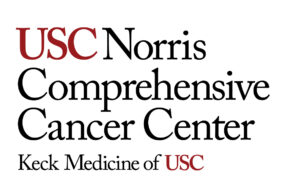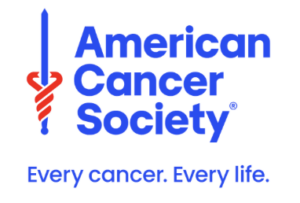USC Norris Comprehensive Cancer Center
An NCI-designated Comprehensive Cancer Center
American Cancer Society Institutional Research Grant Pilot Projects in Cancer Research


About
American Cancer Society Institutional Research Grant (ACS IRG-22-144-60)
The USC Norris Comprehensive Cancer Center invites applications for funding of up to $40,000 for beginning cancer research projects. These grants serve as seed money to initiate promising new projects or novel ideas by junior faculty.
Projects in all areas of cancer research—including basic, clinical, epidemiological, and behavioral—will be considered. Investigators with a competitive national research grant or prior ACS Institutional Research Grant funding are ineligible.
We strongly encourage applications from faculty whose backgrounds and perspectives contribute to broadening participation in cancer research.
Allocations are made based upon the recommendations of the ACS-IRG Scientific Review Committee of the Cancer Center after its review of each application. Only one application per applicant is allowed. Awards are made for a one-year period; anticipated start date of funding is July 1, 2025.
The application period for the ACS IRG Pilot Project funding is now closed. Please check back for updates on the next submission cycle!
- The application period for the ACS IRG Pilot Project funding is now closed. Please check back for updates on the next submission cycle!
- Junior Faculty Status: Applicants must be junior faculty at USC, within the first six years of independent research or faculty appointment by July 1, 2024.
- National Research Grants: Applicants must not have an active or prior competitive national research grant (e.g., NIH K99/R00, R03, R01, R21, DoD, etc.). Recipients of career development (K) awards intended for salary are eligible.
- Citizenship: U.S. citizenship is not required. Non-U.S. citizens must hold a valid visa allowing them to remain in the U.S. for the project duration.
- Required Approvals: IRB and/or IACUC approvals (if applicable) must be obtained before funding release.
- Template: All applications must utilize the official ACS Pilot Project Application template.
- Length: Follow individual page instructions. Use single-spacing throughout.
- Font: Use Arial, minimum 11-point font. 9-point can be used for figures, legends, tables.
- Margins: At least ½ inch on all sides.
- Page Numbers: Consecutively numbered in the upper-right corner.
Applicants are required to complete all sections of the ACS Pilot Project Application template. If a specific section is not applicable to your project, please indicate this clearly within the template. Details and notes on each section are below.
1. Face Page – Biographical Information
Make sure to include your Chair’s Signature for the “Verification of Applicant Eligibility by Department Chair.”
2. Abstract
Provide a 300–500 word summary of the research, addressing:
- Background
- Objective/Hypothesis
- Specific Aims
- Study Design
- Cancer Relevance
The final sentence should summarize the focus and cancer relevance of the project in non-scientific terms.
3. Description of Proposed Research
This section is limited to 5 single-spaced pages (including tables, figures, and graphs) and should be organized under the following headings:
- Specific Aims
- Methodology
- Significance and Relevance to Cancer
- Future Directions and Funding Prospects
References (up to 2 pages) are not included in the 5-page limit. Appendices are not permitted.
4. Budget/Budget Justification
Provide a detailed budget and justification. Allocations are restricted to a maximum of $40,000 direct costs for one year only. In the budget, include:
- Percentage effort for all project personnel (even if no funding is requested)
- Cost-sharing information (If it will be provided from other funding sources to complete the project; provide source of funding and amount.
One additional page for budget justification is allowed.
Indirect costs are not allowable.
See below ACS guidelines for allowable and non-allowable expenses:
ACS Allowable Expenses
- Research supplies and animal maintenance
- Technical assistance
- Domestic travel when necessary to carry out the proposed research program
- Publication costs, including reprints
- Costs of computer time
- Special fees (e.g., pathology, photography)
- Graduate/postdoctoral stipends (if their role is to promote and sustain the project)
- Equipment costing less than $2,000. (For equipment > $2,000, include a special justification)
- Registration fees for scientific meetings
ACS Non-Allowable Expenses
- Principal investigator salary (IRG Chair or pilot project recipient)
- Visiting lecturer expenses (honoraria, travel expenses)
- Administrative/secreterial salaries
- Student tuition and fees including graduate and undergraduate. Note: Tuition is allowable expense for the principal investigator of a Mentored Research Scholar Grant
- Foreign travel (special consideration for attendance of scientific meeting held in Canada)
- Books and periodicals except for required texts for coursework in the approved training plan for Clinician Scientists Development Grants
- Membership dues
- Office and laboratory furniture
- Office equipment and supplies
- Rental of office or laboratory space
- Recruiting and relocation expenses
- Non-medical services to patients (travel to a clinical site or patient incentives are allowable expenses)
- Construction, renovation, or maintenance of buildings/laboratories
5. Additional Information
Complete all sections:
- Underrepresented Minority status
- Mentorship
- Narrative
The application period for the ACS IRG Pilot Project funding is now closed. Please check back for updates on the next submission cycle!
Revisions/Resubmissions
Applicants are eligible for one revision/resubmission of their original proposal. Applicants must submit a letter detailing changes made in the newly submitted proposal and responses to critiques. Changes to the research plan should produce a significant change in direction and approach to the research project. A new application would include substantial changes in all sections of the Description of Research Proposed, particularly:
- Specific Aims
- Methodology
- Future Directions
Competitive Renewals
Applicants funded in FY25 may apply for a second year of funding. In your submission, include:
- A 1-page progress report on initial specific aims and project outcomes of the original submitted proposal
- Budget projections for funds expended/unexpended by the end of year 1 of the project.
These requests for a second year of funding will be competitively reviewed.
New, unrelated projects to the first year of funding are not eligible for competitive renewal, per ACS grant terms and conditions.
